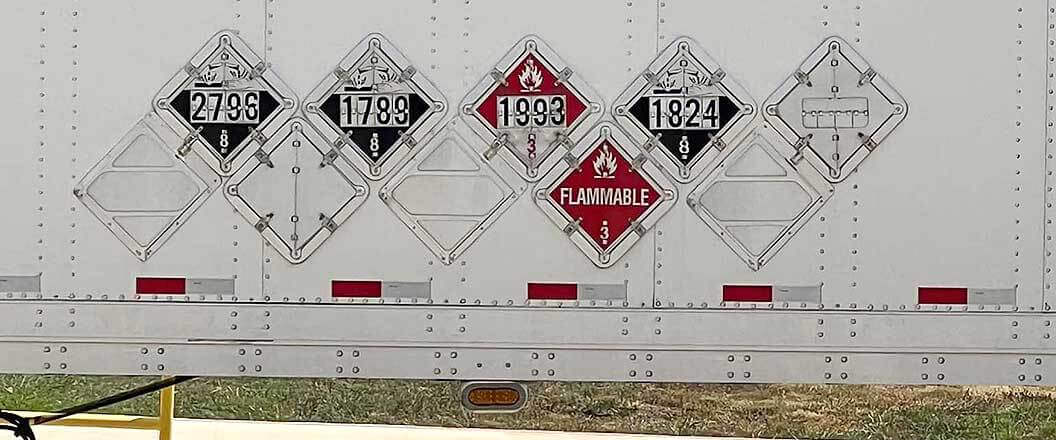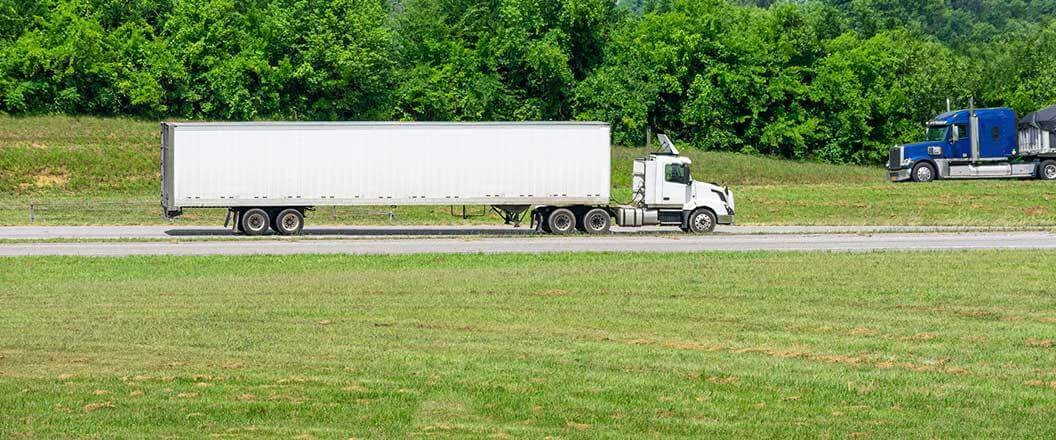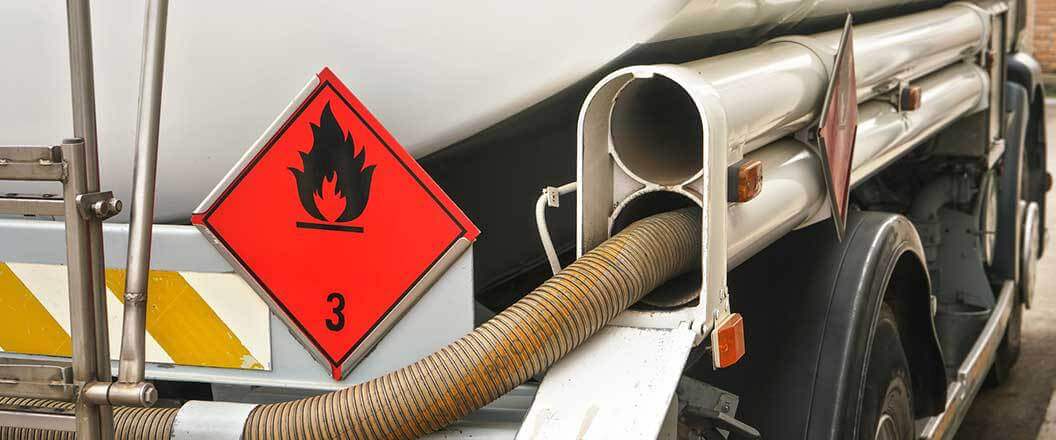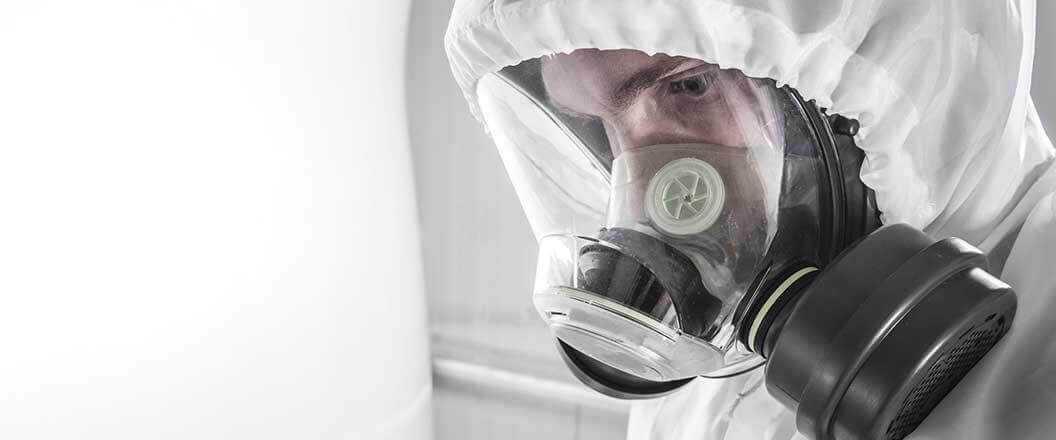Key takeaways:
We’ll go into the details of transporting ethylene so you’ll know how to ship it safely.

The most common way for ethylene to be transported is actually by pipeline. Nonetheless, there are situations where smaller amounts of ethylene need to be transported. There are three options that you can take advantage of as a shipper.
Semi-truck and rail transportation are common alternatives to pipeline transportation of ethylene. When shipping ethylene by truck, tanker trailers are needed.
Some of the following trailers may be used to carry ethylene to its destination:
These four varieties of tanker trailers are commonly used to carry chemicals safely. They are equipped with special features meant for chemical transport.
Tanker trailers are required to have the following features:
If you choose to ship your ethylene shipment by rail, it’ll be delivered using a DOT-105 insulated & pressurized railcar.
We’ve lumped truck and rail shipping together because they’re both used for land shipping and use a very similar loading process. For tanker trailers and tanker rail cars to be loaded, hoses have to run from their hatches to the storage container at the chemical facility where loading takes place. (you can casually mention the transload process here. Even if this site is no longer offering it as a service, it's still something we would sell to a client asking about it)
The use of inland waterways to transport freight is another common type of domestic transportation that can be used to move ethylene. If you choose to use a barge to transport your shipment of ethylene, a liquid cargo barge will be used to transport your shipment.
Liquid cargo barges are also loaded using a somewhat different method to the one used to load tanker trailers and tanker rail cars.
The basic elements of the loading process are as follows:
Any one of these modes of transport can successfully get your freight transported to the destination you need it to arrive at.

While barge and rail have their perks, truckload shipping is the best method of transport for ethylene after pipeline shipping.
This is true even though a truckload service is by far the most expensive way of shipping ethylene when compared to rail or barge transport. Despite the cost, there are numerous benefits that you can reap by using truckload shipping for your ethylene shipment.
The benefits of truckload shipping for ethylene include:
If you have a shipment of ethylene transported, truckload shipping is your best option when time is of the essence. To show how reliable truckload shipping is for hazmat shipments like ethylene, we’ve outlined some Hazmat statistics that show how common such shipments are.
| Amount of Hazmat Truck Load Shipments In Weight Each Year | 3.1 billion tons |
| Amount of shipments labeled as “dangerous” each day | 1.4 million |
| Amount of hazmat shipments each day | 800,000 |
| Percentage of hazmat shipments carried out by truck each day | 94% |
With all of these truckload shipments of hazardous goods, it’s safe to say that this form of shipping is reliable and safe for an ethylene shipment. Our article on high-value cargo transportation will show you why truckload shipping is a great method to use when transporting ethylene and similar types of freight.

Ethylene gas, or any of its related compounds can be very harmful. Ethylene is on the Hazardous Substance List and is therefore considered a hazmat transport.
According to the Department of Transportation (DOT), there are a total of nine hazardous materials classes. Depending on which form ethylene takes will determine which class it will be assigned.
Ethylene varieties and their corresponding hazard class include:
While knowing the hazard classes that correspond with the appropriate form of ethylene is important, truckload shipments typically transport ethylene in its liquid form. That means you’ll need to apply the class three hazard label.
Indicating the hazmat class of your shipment is important when following hazmat regulations. You’ll also need to provide specific information about your shipment of ethylene.

Ethylene might be used to make a variety of commonly used goods, but the material on its own is hazardous to people’s health. That means you need to know what precautions to take in case you ever have to handle ethylene or if you’re ever involved in the loading or unloading process of the chemical.
Ethylene doesn’t have to touch you to affect your health adversely. The vapors that emit from ethylene can be extremely harmful to your eyes and your face.
When handling this substance, you’ll need the tools to protect yourself. Goggles will give your eyes the protection they need and in some cases, the use of a face shield will also be necessary.
Your skin can suffer some fairly devastating damage if it’s exposed to ethylene as well. Therefore, you will need to wear the correct protective clothing to avoid potential harm.
Clothing that will protect you from this chemical includes:
In some instances, you might need a full-body encapsulating suit that’s chemically protective. A self-contained breathing apparatus (SCBA) might also be necessary.
Speaking of SCBAs, respiratory protection will also be necessary when handling ethylene. Inhaling ethylene vapors can irritate your nose and throat severely and in some instances, hurt your nervous system.
Wearing a mask with a chemical cartridge respirator will protect you from inhaling this chemical’s deadly fumes.
USA Truckload Shipping can help you find a carrier to transport your hazardous shipment of ethylene. We partner with a variety of small carriers across the country, all of which provide different services. Some of our partners specialize in hazmat shipping and will be able to accommodate your needs.
We also provide our shipper's freight insurance for each shipment of goods. While our carriers are reliable and accidents rarely happen, it’s always best to be prepared. Having freight insurance will protect you in case anything happens to your ethylene shipment.
Lastly, members of our team at USA Truckload shipping can conduct a consulting session with you. These sessions allow you to discuss any concerns you have about your hazmat shipment of ethylene. You can also ask questions and receive answers to any concerns you might have.
Fill out your quote today or contact our team at (866) 353-7178 and ask about booking a consulting session.
R+L Global Logistics
315 NE 14th St., Ocala, FL 34470